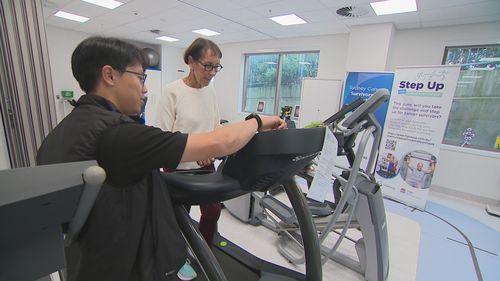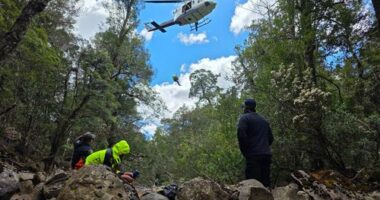Share this @internewscast.com
Beyond just personal achievement, she attributes much of her continued survival to maintaining a structured exercise regimen.
“I think it just makes you realise you’ve got to keep exercising. Keep your body strong. Keep yourself out of hospital,” Bullard said.

Bullard was among nearly 900 stage 2 or 3 colon cancer patients in Australia and Canada who took part in a landmark study examining the effect of a structured exercise routine on disease-free survival rates, alongside standard treatments.
Findings from the 17-year research conducted by the University of Sydney and Canadian Cancer Trials Group revealed that patients engaging in a three-year structured exercise program experienced a 37 percent reduced risk of death, in comparison to those without such a program.
After three years, there was an 80 per cent disease-free survival rate for those in the program, which rose to 90 per cent after eight years.
Colon cancer patients without a structured exercise routine had an 83 per cent survival rate after eight years.
”It’s been nearly 10 years now, which is pretty good,” Bullard said.

“A lot of people don’t last that long but I think if you exercise and you’re surrounded by good support, you can get better and you can last longer.”
Around 15,500 cases of colon cancer were diagnosed in Australia last year.
While cases are declining in older people, it’s becoming more common in people aged 50 or younger.
University of Sydney professor Janette Vardy said the study results were “phenomenal”.
“This is really quite conclusive information that exercise saves lives in colon cancer patients,” she said.
“We know that just telling people to exercise is not enough.
“We now need to implement those structured exercise programs so that every patient coming through our system [is] given an exercise prescription by a qualified exercise specialist.”













